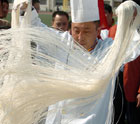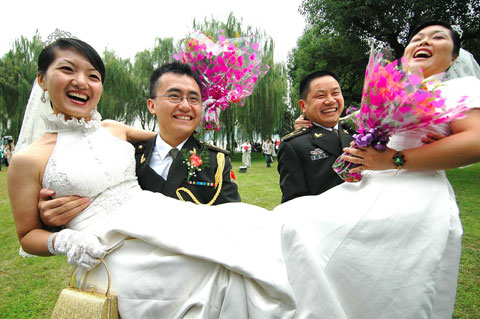"In light of the basic reality that China is in the primary stage of socialism, the scientific outlook on development has been formulated to meet new requirements of development by analyzing China's own practice and drawing on the experience of other countries in development," reads a report delivered by Hu Jintao on behalf of the 16th CPC Central Committee and passed at the closing session of Party congress on Sunday.
"It will improve the vanguard nature and governance capability of the Party," says delegate Wang Yongchang from Shaoxing, a city in the rich eastern province of Zhejiang.
To insert scientific development in its Constitution indicates the Party has maintained a clearer understanding of its mission and objectives, says Prof. Lin, a leading political scientist who was invited to give a lecture to the Political Bureau of the 16th CPC Central Committee.
In this context, the amended Constitution has underscored harmony as one of the Party's goals, alongside prosperity, democracy and cultural advancement.
It now defines the objective in the Party's basic line in the Constitution as turning China into a "prosperous, strong, democratic, culturally advanced and harmonious" modern socialist country.
"The new elaboration on harmony is aimed at addressing some deep-seated issues on China's reform and opening up," says Liu Yunxian, a researcher with the Executive Leadership Academy in Shanghai's Pudong New District.
The newly amended Constitution has stated, for the first time, that the Party "unswervingly encourage, support and guide the development of the non-public sector".
It has also incorporated the principles and policies the Party has formulated for guiding efforts to strengthen the work related to ethnic and religious affairs. This is the first time for " religion" to appear in the Constitution of the atheistic Chinese Communist Party.
Since its founding in 1921, the Party has amended its charter for 15 times.
"Despite the changes in content, the Party's nature, tenet and goals have remained the same -- and this is where the CPC differs from all other parties," says Ni Xingxiang, curator of the Shanghai memorial house of the CPC's birth site.
Ted Baartmans, vice president of International Leadership Association, says he sees a "source of energy" in the CPC's constitutional amendments.











